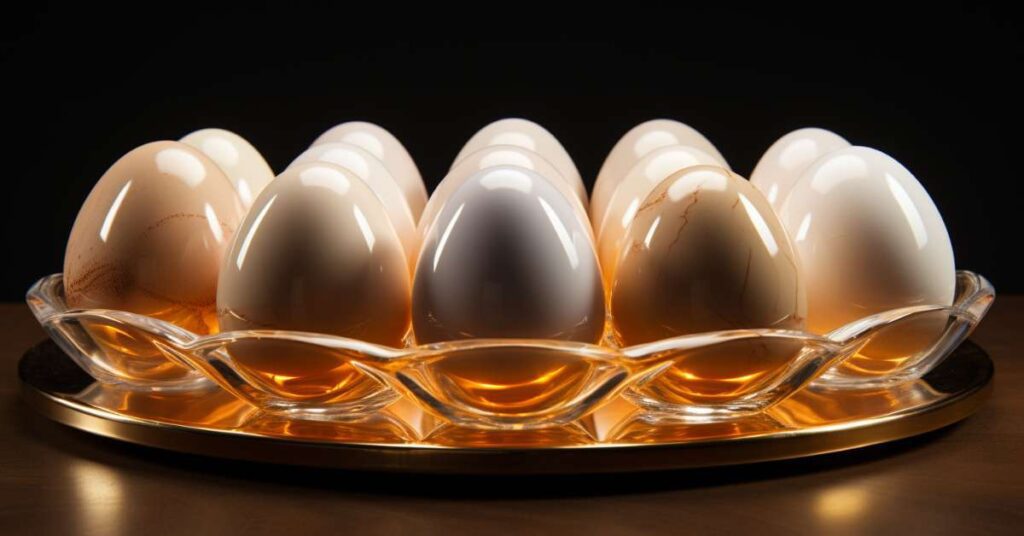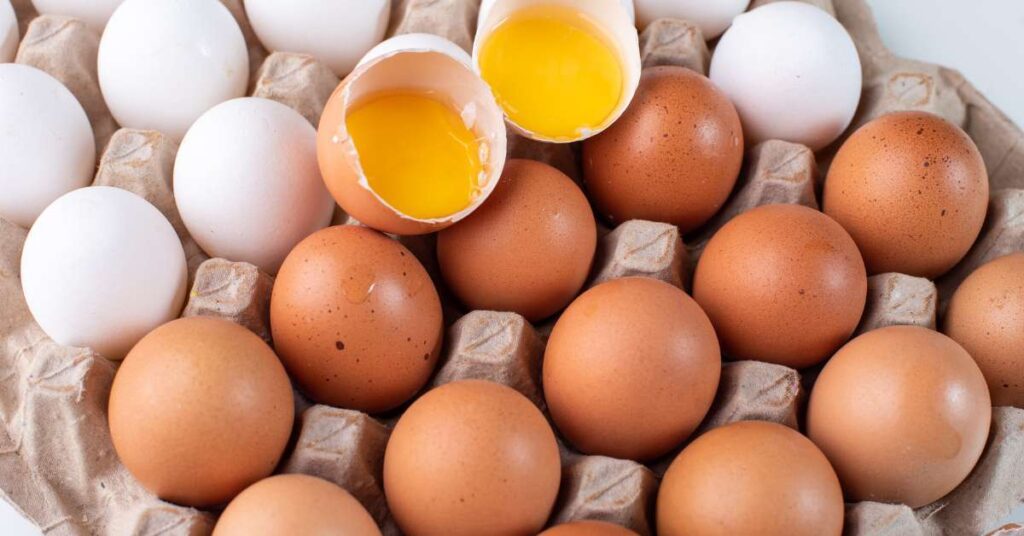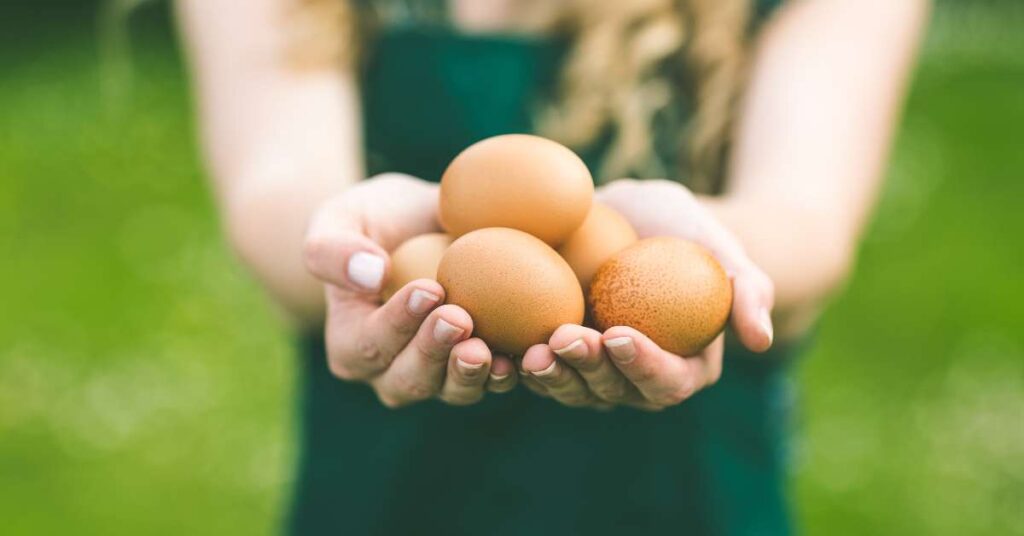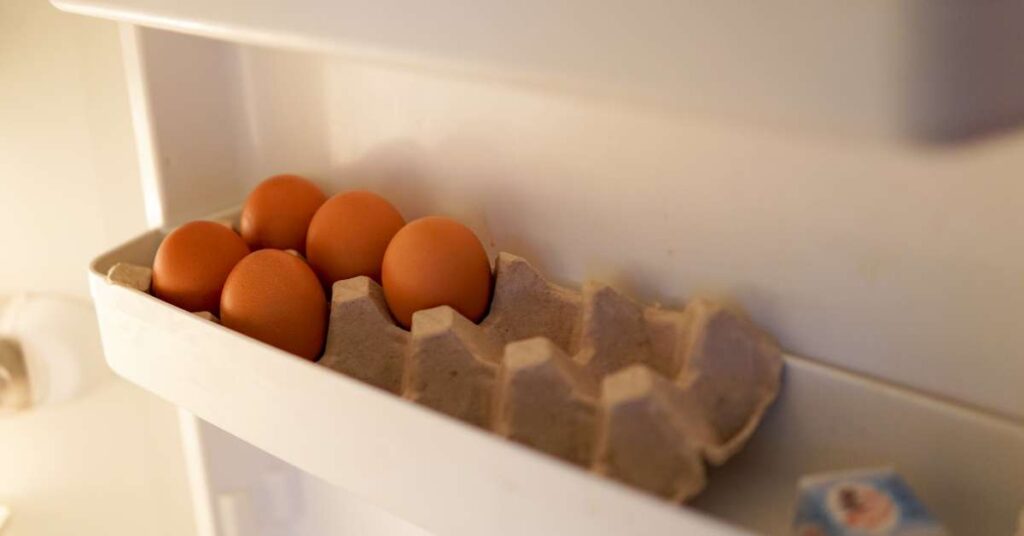In a world driven by instant consumption, the time-honored tradition of food preservation remains an invaluable skill. Among these ancient methods, preserving eggs has always been a crucial task for many households. One such fascinating technique is preserving eggs with mineral oil, but how does it work? How exactly do you do it?
Preserving eggs with mineral oil extends their freshness by mimicking the egg’s natural protective layer. This method involves coating cleaned eggs with food-grade mineral oil, sealing the eggshell pores.
To know more how you can start preserving eggs using this method, read on.
The Science Behind Egg Preservation
Eggs, with their delicate, porous shells, have fascinated scientists for centuries. Their in-built preservation mechanisms are remarkable but understanding these can help us further extend their freshness. Let’s delve into the natural protective layer of eggs and then explore how mineral oil plays a role in egg preservation.
The Natural Protective Layer of Eggs and Mineral Oil
Eggs have a built-in defense called the “bloom” or “cuticle,” a thin layer covering the shell. This layer provides a protective barrier, keeping harmful bacteria from entering and causing spoilage. Over time, this layer can wear off, making the eggs vulnerable to contamination and reducing their shelf life.
Mineral oil acts as a replacement for this natural barrier. When applied, it fills the pores on the eggshell, mimicking the protection offered by the bloom.
It acts as a sealant, blocking the pores of the eggshell, thereby creating a barrier against external contaminants. This replicates the egg’s natural defense system and prolongs its freshness.
Additionally, the oil helps retain the moisture within the egg. As eggs age, they lose water content, leading to an enlarged air cell. The mineral oil’s barrier properties reduce this moisture loss, ensuring that the egg remains fresh for an extended period.
Egg preservation using this method taps into nature’s own protective mechanism, adding a touch of human innovation to boost the longevity of this nutritional powerhouse.
You might be interested to check out our article about building a survival food list from the grocery store.
Step-by-Step Guide: Preserving Eggs with Mineral Oil

Preservation is as much an art as it is a science. To preserve eggs effectively with mineral oil, specific steps must be followed with precision. Let’s walk through the essentials of choosing the right materials and the actual process of application.
Choosing the Right Eggs and Mineral Oil
Always start with fresh eggs; the fresher the egg, the longer its preserved life will be. Eggs directly from farms or local markets are usually the best choice as they haven’t undergone the washing process that commercial eggs have. Washing removes the natural bloom, making the egg more susceptible to bacterial contamination.
Opt for food-grade mineral oil. This ensures that the oil is safe for consumption and won’t impart any harmful residues onto your eggs. You can typically find this in health stores or pharmacies.
Remember, the quality of the materials you start with directly influences the outcome. Fresh eggs and high-quality mineral oil are crucial for effective preservation.
Preparation and Application
First, ensure your eggs are clean. Gently wipe off any dirt or debris but refrain from washing them, as water can push contaminants through the eggshell pores. Dry them thoroughly before the next step.
Using a clean cloth or your hands, lightly coat each egg with a thin layer of mineral oil. It’s essential to cover the entire surface, so no part of the egg remains exposed. Once coated, store the eggs pointy side down in a cool, dark place.
Regularly check on your preserved eggs. While the mineral oil significantly extends their shelf life, it’s always good practice to ensure they remain in optimal condition.
The Benefits of Mineral Oil Preservation
This age-old method of preserving eggs with mineral oil has survived through the ages for good reasons. From extending the life of your eggs to promoting sustainability, let’s explore the advantages of this unique technique.
Extended Shelf Life: Fresh Eggs for Longer
One of the most significant benefits of this method is the remarkable extension of an egg’s shelf life. Under optimal conditions, mineral oil preservation can keep eggs fresh for several months without refrigeration. This is particularly beneficial for those who stock up on eggs or have their own poultry.
The mineral oil forms a protective layer, preventing air and bacteria from penetrating the eggshell. This maintains the egg’s freshness, ensuring you have access to nutritious eggs even if they’ve been stored for an extended period.
With an extended shelf life, you can enjoy the luxury of fresh eggs without frequent trips to the market or the worry of wastage.
You might be interested to check out our article about long term food storage in hot climate.
Sustainability and Cost Efficiency

Preserving eggs with mineral oil promotes sustainability. By extending the life of your eggs, you reduce food wastage, a significant issue in many households. Additionally, because this method doesn’t require refrigeration, it can also lead to energy savings.
With the rising cost of food, any method that allows consumers to save money is welcome. Mineral oil is relatively inexpensive, and the savings gained from not having to discard spoiled eggs more than compensates for its cost.
Moreover, for those living in areas with intermittent power or without access to refrigeration, this method provides a reliable way to preserve eggs, ensuring a consistent food source.
You might be interested to check out our list of cheap foods that last a long time.
Addressing Potential Concerns and Risks
While the benefits are numerous, it’s crucial to also be aware of any potential drawbacks or concerns when preserving eggs with mineral oil. From flavor implications to health precautions, let’s address some of these concerns head-on.
Flavor Alterations and Culinary Impacts
Some individuals report a slight change in the taste or texture of eggs preserved using mineral oil. While the oil itself is tasteless, the prolonged storage might lead to subtle changes in the egg’s consistency.
However, most people find that these changes are negligible, especially when using the eggs in recipes or dishes where other flavors dominate. It’s always a good idea to do a small test batch first to determine if the taste and texture are to your liking.
Remember, while the egg’s flavor might slightly alter, its nutritional value remains intact, making it a worthy trade-off for extended shelf life.
Health and Safety Precautions

Safety always comes first. Ensure you’re using food-grade mineral oil, which is safe for consumption. Avoid using mineral oils meant for industrial purposes or those not labeled as food-grade.
Before consuming a preserved egg, it’s wise to perform a sniff test. If the egg emits an off or foul odor, discard it. Additionally, always cook preserved eggs thoroughly to eliminate any potential bacterial threats.
Lastly, while mineral oil extends the life of eggs, it’s essential to monitor stored eggs for any signs of spoilage. Regular checks will ensure that your preserved eggs remain in the best condition.
Alternatives and Variations: Other Egg Preservation Methods
While mineral oil has proven to be an effective preservation method, it’s not the only technique out there. From age-old methods to modern refrigeration, egg preservation has seen numerous variations. Here’s a look at some other popular methods.
Water Glassing: An Old-time Method
Water glassing involves submerging eggs in a solution of sodium silicate, commonly known as “water glass.” This method creates a gel-like seal around the egg, preventing air and bacteria from entering.
Historically, water glassing was a favored method, especially before the widespread availability of refrigeration. It offers a long shelf life and, like mineral oil preservation, reduces the need for cold storage.
However, it’s crucial to note that the solution can be caustic, so handling with care is paramount. And, just like with mineral oil preservation, always start with fresh, clean eggs.
Refrigeration and Freezing

Modern refrigeration has made egg preservation much simpler for most households. Storing eggs in the fridge slows down the aging process, keeping them fresh for several weeks.
Freezing is another option. While you can’t freeze whole eggs in their shells, you can crack them into containers and freeze them. This method is suitable for those who have an excess of eggs and want to store them for extended periods.
Remember, while refrigeration and freezing are convenient, they don’t replicate the natural preservation methods that mineral oil or water glassing offer.
Rekindling Traditional Techniques: Preserving Eggs with Mineral Oil
In our fast-paced world, embracing time-honored traditions can offer both practical benefits and a connection to our roots. Preserving eggs with mineral oil is more than just a method; it’s a testament to human ingenuity and adaptability.
As we continually search for ways to be sustainable and reduce waste, revisiting such traditional techniques is invaluable. Not only do they teach us about history and culture, but they also provide practical solutions to modern-day challenges. Embracing these methods enriches our culinary experiences and deepens our appreciation for the age-old wisdom that continues to serve us today.
